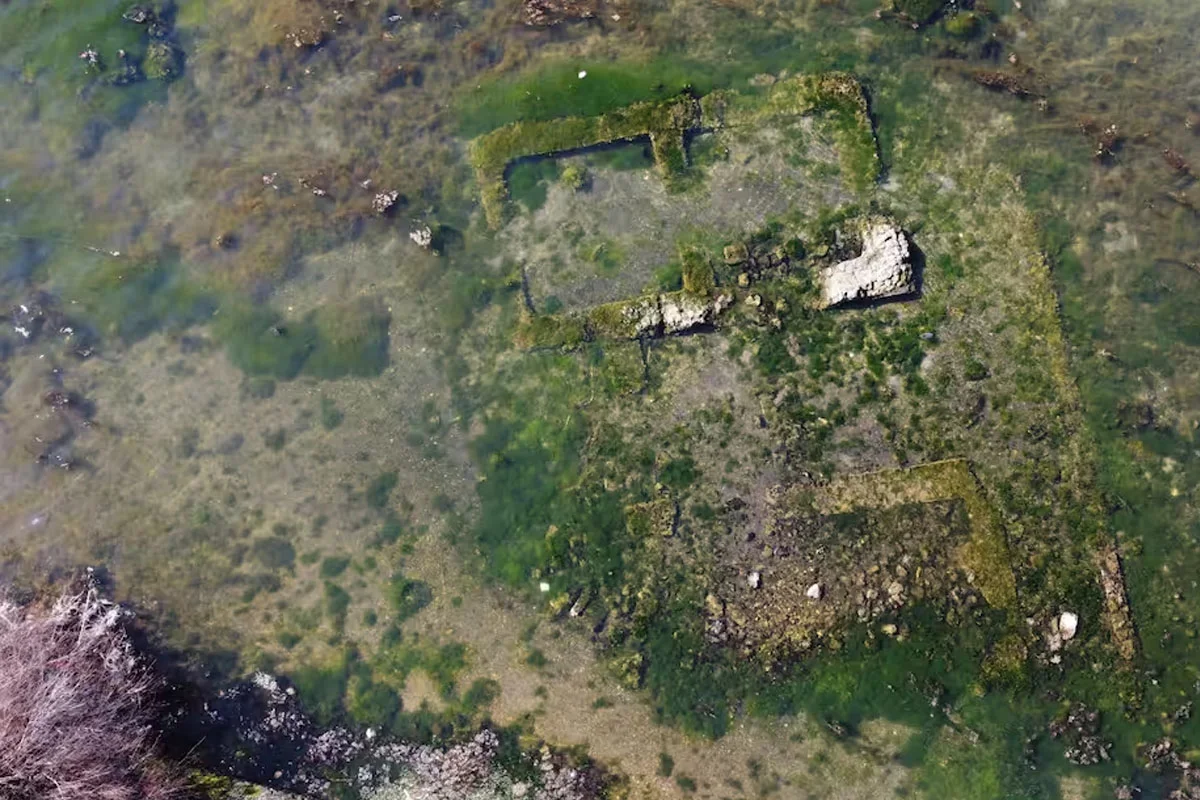The remains of a Roman village complex have started to emerge from the waters of Lake Fusaro due to a process of geological uplift known as bradysism.
Lake Fusaro is located in the comune of Bacoli in the Italian province of Naples. The lake and surrounding area are situated in the Phlegraean Fields, an active and volatile volcanic region of bradyseismic activity.
Bradyseism refers to the slow rise (positive bradyseism) or fall (negative bradyseism) of a section of the Earth’s surface, driven by the movement of magma or hydrothermal fluids beneath the ground.
The Phlegraean Fields sits within a collapsed caldera, namely a volcanic area formed by several volcanic edifices, which includes the Solfatara volcano, well known for its fumaroles (vents from which hot volcanic gases and vapours are emitted).
Adjacent to the lake are the partially submerged remains of the Roman town of Baiae, a popular resort in antiquity that gained a reputation for a “hedonistic lifestyle”. According to Sextus Propertius, a poet of the Augustan age during the 1st century BC, Baiae was a “vortex of luxury” and a “harbour of vice”.
On the opposite side of the Gulf of Naples are the remains of Roman Pompeii and Herculaneum, both major population centuries in antiquity that were buried under thick layers of ash and pumice during the AD 79 eruption of Mount Vesuvius.
According to a study by the National Institute of Geophysics and Volcanology, the area of Lake Fusaro has been rising since 2005, having rised in elevation by approximately 138 centimetres, 20 centimetres of which were recorded in 2024 alone.
This rapid acceleration has caused the seabed to rise and the shoreline to retreat, causing damage and difficult access to some ports and marinas along the coast.
An unexpected result of the bradyseismic activity is the emergence of a Roman villa visible in aerial photography. Josi Gerardo Della Ragione, the Mayor of Bacoli, explained that the villa likely had thermal baths, which will now be studied by the Superintendence of Archaeology, Fine Arts and Landscape of Naples.
Header Image Credit : Josi Gerardo Della Ragione, the Mayor of Bacoli
Sources : Josi Gerardo Della Ragione, the Mayor of Bacoli





